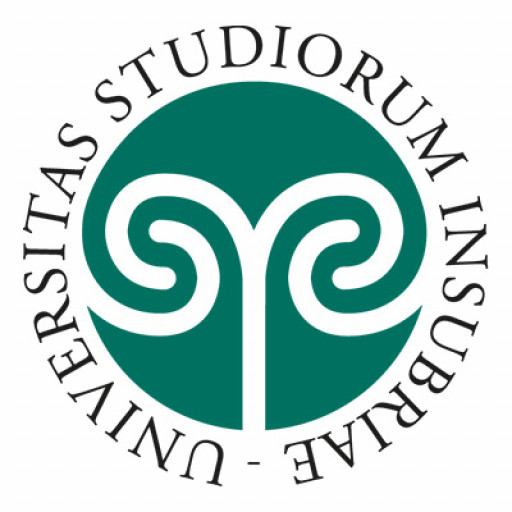Photos of university / #_londonu
The University of London offers a comprehensive Entrepreneurship (Year in Business) programme designed to equip aspiring entrepreneurs with the critical skills, knowledge, and practical experience necessary to succeed in the dynamic world of business. This programme is ideal for students who wish to gain a deep understanding of the fundamental principles of entrepreneurship, develop innovative business ideas, and learn how to effectively launch and manage their own enterprises. Throughout the programme, students will explore various aspects of starting and growing a business, including market analysis, business planning, financial management, marketing strategies, and leadership skills.
The curriculum is carefully structured to combine theoretical foundations with real-world application. Students will engage in case studies, interactive workshops, and project-based learning, providing opportunities to work on actual business challenges and develop practical solutions. The programme also emphasizes the importance of digital skills and the use of modern technological tools in entrepreneurship, preparing students for the increasingly digital business landscape.
One of the key features of the programme is the Year in Business component, which is designed to give students hands-on experience by working within start-ups or established companies. This internship period enables students to apply their learning in a real business environment, gain valuable industry insights, and build professional networks. The Year in Business not only enhances practical skills but also helps students develop confidence and entrepreneurial mindset essential for launching their ventures or advancing their careers.
The teaching faculty comprises experienced entrepreneurs, industry experts, and academic specialists who bring a wealth of practical knowledge and mentorship to the programme. Students will have access to a range of resources including entrepreneurial workshops, networking events, and mentorship opportunities, fostering a vibrant entrepreneurial community.
Graduates from the Entrepreneurship (Year in Business) programme will be well-prepared to start their own businesses, work in entrepreneurial roles within established organizations, or pursue further postgraduate studies in related fields. The programme's flexible structure and comprehensive content ensure that students are ready to navigate the challenges of the modern business world and turn their innovative ideas into successful enterprises. With a strong emphasis on practical experience, theoretical knowledge, and professional development, this programme aims to cultivate the next generation of innovative entrepreneurs and business leaders.
The Entrepreneurship (Year in Business) program offered by the University of London is a dynamic and comprehensive course designed to equip aspiring entrepreneurs with the essential knowledge, skills, and practical experience needed to successfully launch and manage their own businesses. Throughout this program, students will explore the fundamental principles of entrepreneurship, including opportunity recognition, business planning, financial management, marketing strategies, and innovation. The curriculum emphasizes real-world application, encouraging students to develop their own business ideas, conduct market research, and create detailed business plans tailored to their targeted industries.
The program is particularly suitable for individuals who are interested in starting their own businesses or working within entrepreneurial organizations. It provides a solid foundation in entrepreneurship theory, complemented by case studies and interactive projects that foster critical thinking and problem-solving skills. Students will learn about different business models, funding options, legal considerations, and the importance of sustainable and responsible business practices. The curriculum also explores the role of digital technology in modern entrepreneurship, covering topics such as e-commerce, digital marketing, and the use of social media platforms for business growth.
One of the key features of the program is its focus on experiential learning. students will have opportunities to participate in workshops, networking events, and mentorship programs that connect them with experienced entrepreneurs and business professionals. This practical approach ensures that graduates are not only knowledgeable but also confident in their ability to implement their ideas and navigate the challenges of entrepreneurship.
The program is delivered through a blend of online lectures, interactive seminars, and project-based assignments, allowing flexibility for students to study at their own pace while receiving comprehensive support from experienced tutors. The curriculum is regularly updated to reflect current trends and best practices in entrepreneurship, ensuring that students gain relevant and up-to-date insights.
Graduates of the Entrepreneurship (Year in Business) program will be well-prepared to launch their own startups, work in innovative business environments, or pursue further studies in entrepreneurship or related fields. The program aims to inspire and empower students to turn their ideas into viable businesses that can make a positive impact in their communities and beyond. With a strong focus on practical skills and entrepreneurial mindset development, this program offers a valuable pathway for aspiring entrepreneurs seeking to make their mark in a competitive global economy.
The Entrepreneurship (Year in Business) program at the University of London is designed to provide students with a comprehensive understanding of entrepreneurial principles and practices, focusing on the application of business theories in real-world contexts. The program aims to develop participants' ability to identify opportunities, create innovative business models, and successfully launch and manage new ventures. It emphasizes critical thinking, strategic planning, financial literacy, and leadership skills, ensuring graduates are well-equipped to thrive in dynamic business environments. Throughout the course, students engage with case studies, practical projects, and industry placements, fostering experiential learning that bridges academic knowledge with practical skills. Enrollment requirements typically include the completion of secondary education with relevant qualifications, and applicants may need to demonstrate a basic proficiency in business-related subjects. The program is suitable for aspiring entrepreneurs, recent graduates seeking entrepreneurial skills, and professionals aiming to innovate within their organizations. Students are expected to dedicate significant time to coursework, independent research, and collaborative projects, often spanning over the course of one academic year for full-time students or an extended period for part-time participants. The curriculum covers essential topics such as business planning, marketing strategies, financial management, operational logistics, and legal considerations in entrepreneurship. Additionally, the program incorporates digital tools and modern communication platforms to enhance learning and facilitate networking among students and industry experts. Successful completion of the program leads to a certificate from the University of London, recognizing the participant's entrepreneurial competencies and readiness to start or expand a business. Overall, the program strives to inspire innovative thinking and practical entrepreneurship skills, preparing graduates to make meaningful contributions to the economic development and competitiveness of their local and global communities.
The University of London offers comprehensive financing options for students pursuing the Entrepreneurship (Year in Business) programme. Tuition fees are structured to provide flexibility and support for a diverse student body, including domestic and international students. The standard tuition fee for the programme varies depending on the student's residence status and funding arrangements but generally ranges between £9,250 and £15,000 per academic year. The university encourages prospective students to explore various financial aid opportunities, including scholarships, grants, and bursaries, which are available based on merit, need, or specific criteria.
In addition to scholarships offered directly by the University of London, students are also advised to seek external funding sources such as government loans, private scholarships, and sponsorships from industry partners. The university's financial aid office provides guidance on eligibility, application procedures, and deadlines to assist students in maximizing their financial planning. For international students, the university offers specific advice on scholarship programs and work opportunities to supplement their income during their studies.
Payment plans are available to help manage tuition costs effectively. These plans may include installment payments over the academic year, allowing students to spread the financial burden. Additionally, the university participates in various loan schemes that facilitate access to funds for eligible students. Student loans from government agencies may be applicable for domestic students, while international students are encouraged to explore private loan options where available.
The cost of living is an essential factor in financing studies in London. Students are advised to budget for accommodation, transportation, food, textbooks, and personal expenses. The university provides resources and advice on affordable housing options and cost-saving measures. Many students finance their studies through a combination of personal savings, part-time work, family support, and financial aid. The university's Career Services also assist students in securing part-time employment opportunities within and outside the campus to support their financial needs.
Overall, the university is committed to ensuring that financial barriers do not hinder access to education. It continually reviews and updates its financial support offerings to accommodate the changing needs of its student population. Potential applicants are encouraged to consult the official university website or contact the admissions and financial services offices directly for the most current information on tuition fees, funding options, and financial planning guidance.
The University of London's Entrepreneurship (Year in Business) program is designed to equip students with essential skills and knowledge to launch and manage their own businesses effectively. This program offers a comprehensive curriculum that covers various aspects of entrepreneurship, including business planning, financial management, marketing strategies, innovation, and leadership. Students are encouraged to develop their entrepreneurial mindset through practical sessions, case studies, and interaction with experienced entrepreneurs. The program emphasizes real-world application, enabling students to turn their innovative ideas into viable business ventures.
Throughout the program, students gain insights into how to identify market opportunities, develop business models, and sustain business growth over time. They also learn about the legal and regulatory environment affecting new businesses, ensuring they are well-prepared to navigate the complexities of entrepreneurship in different markets. The coursework is complemented by workshops, networking events, and mentorship opportunities, which help students build their professional connections and practical skills.
The Year in Business component allows students to immerse themselves directly in a startup environment or established business setting, gaining firsthand experience in operational management and entrepreneurship dynamics. This experiential learning is integral to understanding the day-to-day challenges and opportunities faced by entrepreneurs. It also fosters critical thinking, problem-solving, and adaptability.
The program is suitable for aspiring entrepreneurs, recent graduates, and professionals looking to pivot into startup ventures. Upon completion, graduates will have developed a solid foundation in entrepreneurship, enabling them to launch their own startups or pursue careers in innovation and business development. The university’s reputation for academic excellence, combined with its extensive network of industry contacts, provides students with valuable resources and support throughout their entrepreneurial journey.
Overall, the Entrepreneurship (Year in Business) program at the University of London offers a balanced blend of theoretical knowledge and practical application, preparing students to thrive in competitive business environments and contribute actively to economic growth and innovation.









